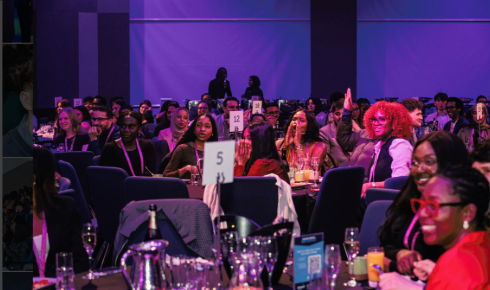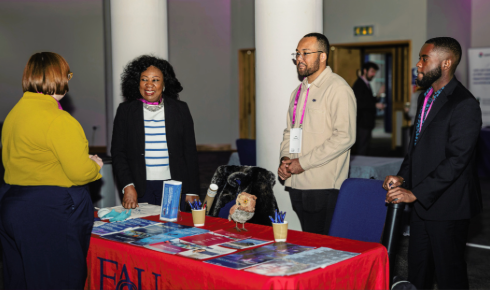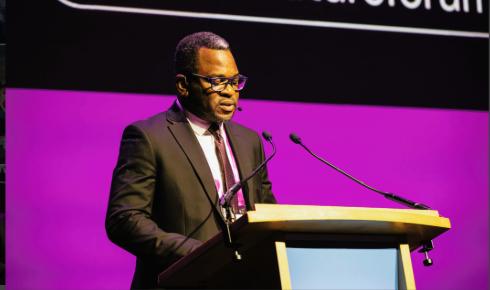A forum for minoritised scientists

24 September 2025
The RSB recently supported a three-day conference designed by and for minoritised scientists – the first event of its kind in Europe
Earlier this year more than 500 delegates attended the three-day Minoritised Life Scientists Future Forum (MLSFF) at the ICC Birmingham, an event designed by and for scientists from marginalised backgrounds.
Managed by Applied Microbiology International (AMI), it was hosted by BBC broadcaster Merisha Stevenson, and drew more than 150 participating institutions, 50 exhibitors and 170 abstract submissions from 12 countries.
The RSB funded 15 students to attend from Birmingham’s King Edward VI Handsworth School for Girls. Delegates were able to showcase their research and find mentorship. The forum also served as a space for open discussions on challenges such as unconscious bias, lack of institutional support and barriers to career progression. Everything from the music to the food created an inclusive atmosphere, considerate of ethnic background, disabilities, neurodiversity, low-income or widening-participation backgrounds, mature students, LGBTQ+ and anyone who felt they could contribute to or benefit from the space.
 The event welcomed scientists from all backgrounds who felt they could contribute to or benefit from the space
The event welcomed scientists from all backgrounds who felt they could contribute to or benefit from the space
Keynote and plenary speakers included Professor Kevin Fenton CBE, regional director of public health for London and president of the UK Faculty of Public Health, whose talk tackled structural racism in health outcomes.
Transformative experience
AMI trustee and chair of the event’s steering committee Professor Emmanuel Adukwu said advancing equity in the biosciences required environments “where everyone feels accepted, valued, and connected”.
He said that for many minoritised early-career scientists, attending a conference “can be daunting and communicate a lack of belonging”. He said: “[The event] showcased what is possible when equity, visibility and community are placed at the heart of scientific dialogue.”
Workshops on leadership, anti-racism and inclusive research cultures, alongside powerful storytelling and mentorship, “left many feeling energised and equipped to lead change in their institutions,” said Adukwu. “It didn’t just highlight the challenges; it provided a template for the future. The forum is CPD accredited, so it can influence institutional policies and practices.”
 Professor Emmanuel Adukwu, chair of the event’s steering committee
Professor Emmanuel Adukwu, chair of the event’s steering committee
DEI backlash
Dr Paul Sainsbury, AMI COO, said the conference came at a time when across public and private research, diversity, equity and inclusion initiatives are facing something of a backlash. “In the US, President Trump’s executive order to eliminate DEI across federal agencies is no longer merely a threat... In the UK, although no similar directive exists, senior leaders across universities, museums and funders have reported a subtle shift… as commitments are quietly downgraded and a mood of uncertainty is setting in. That is what made the MLSFF feel so starkly countercultural.”
Adukwu and his fellow conference organisers would like to see the forum evolve from a periodic conference to a “sustained ecosystem for minoritised life scientists and allies”. He would like institutions and organisations to view the forum as a space that provides opportunities to engage, connect, collaborate and recruit diverse, unique and multi-talented individuals.
“The MLSFF’s success depends on higher education institutions and STEM organisations viewing it not as an external event to support, but as a collaborative partner in transforming the life sciences landscape,” he said.
MLSFF 2026 is coming to Edinburgh on 23–25 March 2026.
The Minoritised Life Scientists Future Forum (MLSFF) is an event designed by and for scientists from marginalised backgrounds


